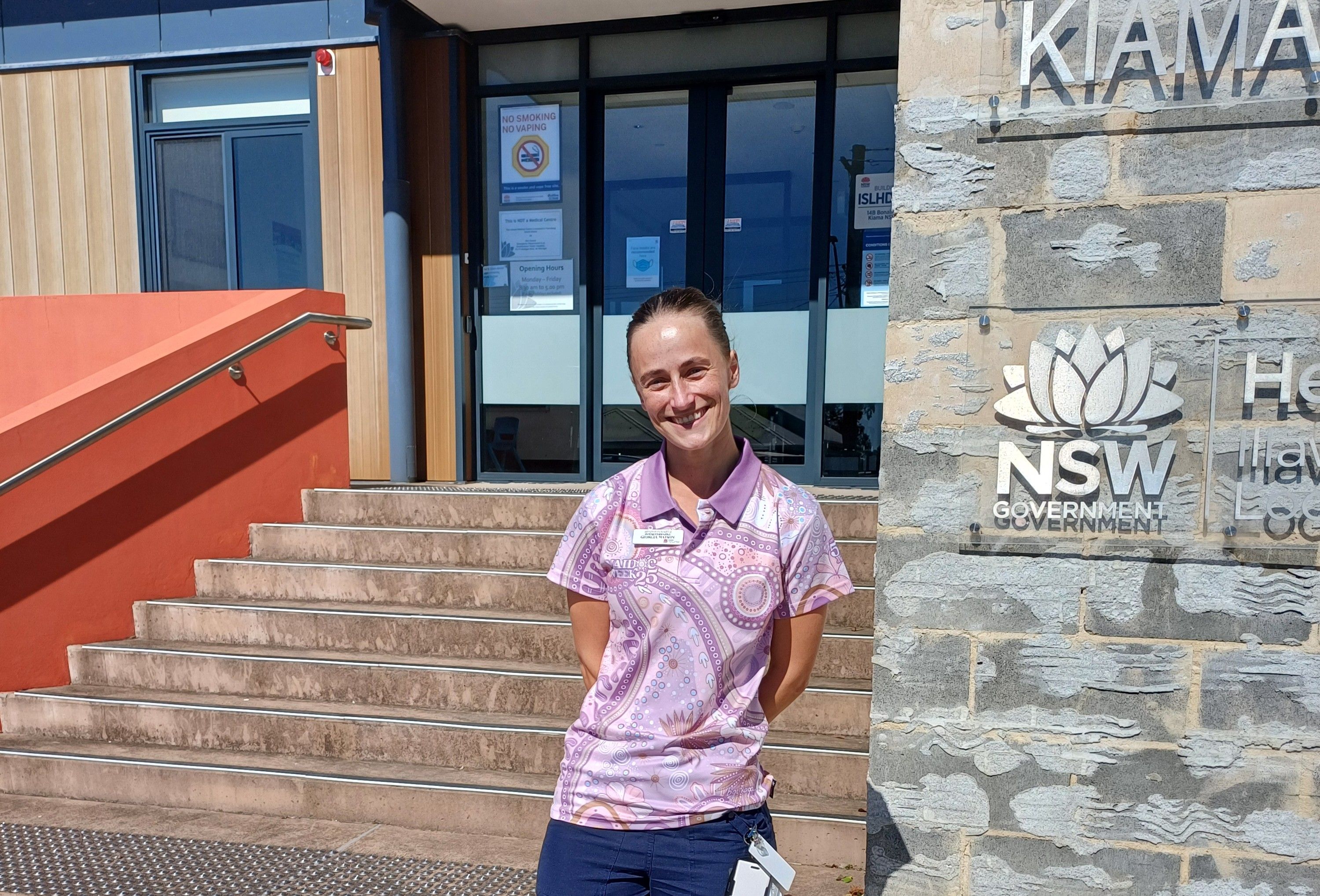Kiama leading the way on menopause action
Danielle Woolage
26 October 2025, 12:00 AM
 Menopause coordinator Georgia Watson at the Kiama Integrated Primary and Community Health Centre. Photo: Supplied
Menopause coordinator Georgia Watson at the Kiama Integrated Primary and Community Health Centre. Photo: SuppliedMenopause is a natural transition, not a disease. That is the message being spruiked by women’s health professionals across the region on the back of World Menopause Day.
For too long menopause has been shrouded in silence, but as more women find their voice, clinical and public awareness has increased and so too has government action, with Kiama leading the way.
Last month NSW Health Minister Ryan Park and Minister for Women Jodie Harrison launched the Illawarra Shoalhaven Menopause Service at the Kiama Integrated Primary and Community Health Centre.
The service, linked with the nursing and medically-led menopause hub at The Royal Hospital for Women, provides holistic treatment for the thousands of women across NSW experiencing severe or complex symptoms of menopause and perimenopause.
On October 18, to mark World Menopause Day, the health minister announced the state government’s two-year rollout of menopause services was complete, with more than 7000 women state-wide using the specialist services.
“By working in partnership with the Royal Hospital for Women, we’re ensuring that women experiencing severe or complex menopause symptoms can receive expert care, with a dedicated pathway to access the right help, at the right time, in the right place,” says Mr Park.
Illawarra Shoalhaven menopause referral service coordinator Georgia Watson says the clinics, which also operate in Nowra and Ulladulla, ensure women in rural and regional areas get the wraparound support they need close to home.
“Having a dedicated menopause service helps break down barriers to accessing expert care in what can already be a challenging time in this person’s life,” says Ms Watson.
“Our goal is to make sure every person who uses this service is supported. Whether it’s through physiotherapy, virtual consultations, or connection with local services, we’re here to walk alongside them.”
World Menopause Day was created by the International Menopause Society (IMS) and World Health Organization (WHO) in 2009 to improve menopause treatment through expert knowledge and clinical research.
This year's focus was on the role of Lifestyle Medicine in Menopausal Health, with research highlighting the link between healthy lifestyle choices, a reduced risk of chronic disease and improved menopausal symptoms.
The paper found that lifestyle medicine – healthy eating, physical activity, mental well-being, avoidance of risky substances, restorative sleep and healthy relationships – played a major role in optimising health during menopause.
Risks associated with menopause can include increased heart disease, diabetes, osteoporosis and mental health problems as well as diabetes, with World Menopause Day shining a spotlight on the long-term health and economic impacts if symptoms aren’t addressed.
“For too long, menopause has been under-recognised,” says newly-elected Kiama MP Katelin McInerney.
“(The Illawarra Shoalhaven Menopause Service) acknowledges the complexity and individuality of each woman’s journey. This service is about equity, dignity, and responding to women who’ve asked for better support, it’s an important step towards more comprehensive women’s health.”
The Illawarra Shoalhaven Menopause Service’s nursing and clinical care coordinators provide assessment, triage and referral to multidisciplinary teams including physiotherapy, psychology or psychiatry, dietitians and medical specialists to reduce health risks.
Improved menopause treatment has also been on the federal government’s radar, after a senate inquiry into menopause and perimenopause in 2024 found a widespread lack of understanding and awareness, even among health professionals.
During the inquiry’s public submissions women frequently reported limited access to evidence-based information and support, which led to frustration and feelings of isolation.
Last week the Commonwealth, in response to the inquiry’s recommendations, opened the tender process to develop national clinical guidelines for healthcare professionals.
The guidelines, along with increased training, would ensure women in perimenopause and menopause received consistent advice, support and treatment.
Federal Assistant Minister for Women Rebecca White says the inquiry found significant knowledge gaps meant health professionals “ can lack confidence in providing menopause advice and management options, particularly menopausal hormone therapy”.
“This can lead to delays and inconsistencies in diagnosis and management and poorer health outcomes for women,” she says.
“Perimenopause and menopause can have a major impact on women’s health and wellbeing, affecting sleep, concentration, mood and quality of life. Yet too many women continue to struggle to find the right advice and support.”
For more information on available support visit Illawarra Shoalhaven Menopause Service.
NEWS




